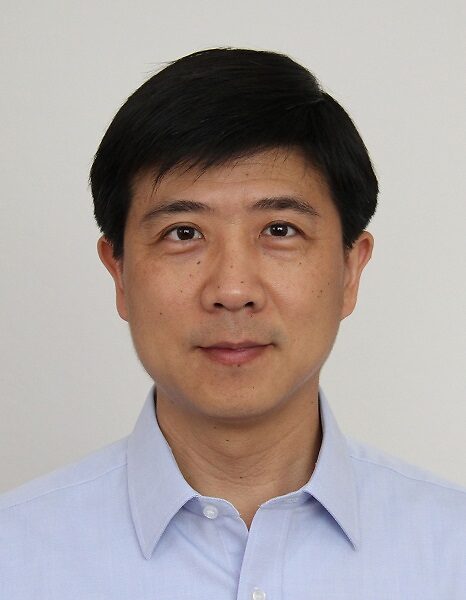Seminar ''Chemical Routes toward Long-Lasting Lithium/Sulfur Cells '' Prof. Yuegang Zhang

Date
Friday, May 8, 2015 - 10:00 to 11:00
Location
Meeting Room C016, Lab1
Description
----------------------------------------------------------------------
Date: Friday, May 8, 2015
Time: 10:00-11:00
Venue: C016, Lab1
----------------------------------------------------------------------
Speaker:
Prof. Yuegang Zhang
i-Lab, Suzhou Institute of Nano-Tech and Nano-Bionics
Chinese Academy of Sciences, Jiangsu, China
Title:
Chemical Routes toward Long-Lasting Lithium/Sulfur Cells
Abstract:
Lithium/Sulfur (Li/S) cells have great potential to become mainstream secondary batteries due to their ultra-high theoretical specific energy. The major challenge for Li/S cells is the unstable cycling performance caused by the sulfur’s insulating nature and the high-solubility of the intermediate polysulfide products. Several years of efforts to develop various fancy carbon nanostructures, trying to physically encapsulate the polysulfides, did not yet push the cell’s cycle life long enough to compete with current Li ion cells. Starting on 2011, we have adopted a new chemical approach to solve this problem. For example, instead of using graphene, we used graphene oxide (GO) as a starting material to make S-C composite electrode and realized stable cycling over 1500 cycles for the GO-S/Li cells. To further improving the electronic conductivity of the S-C electrode, we recently developed another nitrogen functionalization approach to make a highly conductive nitrogen-doped graphene (NG)-S composite, which enabled an ultra-stable cycling exceeding 2000 cycles with a capacity decay rate as low as 0.028% per cycle, even without the need to add extra carbon additives. Through ab-initio calculation, synchrotron X-ray absorption spectroscopy, X-ray photoelectron spectroscopy, and in-situ/ex-situ electron microscopic analyses, we found that the roles of oxygen functional groups on GO and the nitrogen functional groups on NG are different, but both have a significant effect in preventing the loss of sulfur and extending the cycle-life of the Li/S cells.
(1) Y. Qiu, W. Li, W. Zhao, G. Li, Y. Hou, M. Liu, L. Zhou, F. Ye, H. Li, Z. Wei, S. Yang, W. Duan, Y. Ye, J. Guo, Y. Zhang*: “High-Rate, Ultralong Cycle-Life Lithium/Sulfur Batteries Enabled by Nitrogen-Doped Graphene” Nano Letters 14, 4821−4827 (2014).
(2) Y. Qiu, W. Li, G. Li, Y. Hou, L. Zhou, H. Li, M. Liu, F. Ye, X. Yang, Y. Zhang*: “Polyaniline-modified cetyltrimethylammonium bromide-graphene oxide-sulfur nanocomposites with enhanced performance for lithium-sulfur batteries” Nano Research 7, 1355–1363 (2014).
(3) M. K. Song, Y. Zhang*, and E. J. Cairns*, “A Long-Life, High-Rate Lithium/Sulfur Cell: A Multifaceted Approach to Enhancing Cell Performance”, Nano Letters 13, 5891-5899 (2013).
(4) L. Ji, M. Rao, H. Zheng, L. Zhang, Y. Li, W. Duan, J. Guo, E. J. Cairns, and Y. Zhang*, “Graphene Oxide as a Sulfur Immobilizer in High Performance Lithium/Sulfur Cells”, Journal of the American Chemical Society 133, 18522–18525 (2011).
(5) M. K. Song, E. J. Cairns, and Y. Zhang*, “Lithium-Sulfur Batteries with High Specific Energy: Old Challenges and New Opportunities” (Feature Article), Nanoscale 5, 2186–2204 (2013).
Biography:
Yuegang Zhang received his B.S. and M.S. degrees in Physics from Tsinghua University, and Ph. D degree in Materials Science from the University of Tokyo. In his early career, he conducted research on nanotubes and nanowires at NEC Fundamental Research Labs and Stanford University. After he joined Intel Corporation as a PI, he led the Intel Carbon Nanotube Research Project and chaired Intel Memory Strategic Research Sector. During his tenure at Lawrence Berkeley National Laboratory, he led a research group working on graphene based electronic device and electrochemical energy storage. He is currently a professor at the Suzhou Institute of Nano-Tech and Nano-Bionics, Chinese Academy of Sciences, with joint appointments in Tsinghua University and Shanghai Tech University.
Host:
Prof. Yabing Qi
Attachments
Sponsor or Contact:
Ayako Masaki
All-OIST Category:
Subscribe to the OIST Calendar: Right-click to download, then open in your calendar application.



